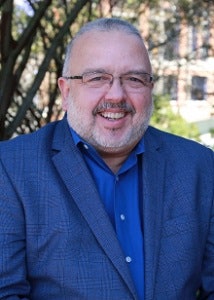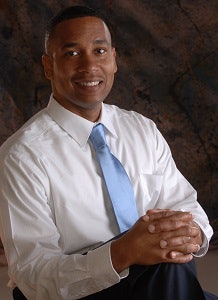Though the field of computer science has seen strides in the increased number of people earning degrees and in job openings across the country in recent years, the field is still lacking diverse representation of women and minorities.
Out of all of the bachelor’s degrees in computer science received in 2015, 8.4 percent were Latinx students at doctoral-granting colleges and universities, 8.5 were Latinx students at non-doctoral-granting institutions, 4.3 were Black students at doctoral-granting institutions and 8.6 were Black students at non-doctoral granting institutions, according to Integrated Postsecondary Education Data System (IPEDS) data from the National Center for Education Statistics.
In 2015, women comprised 15.3 percent of computer science bachelor’s degrees earned at doctoral-granting institutions and consisted of 16.6 percent of degrees earned at non-doctoral-granting institutions.
 Dr. Manuel A. Pérez-Quiñones
Dr. Manuel A. Pérez-QuiñonesA new report from the Association of Computing Machinery Education Board’s Retention Committee outlines successful interventions to encourage more women and minority students to pursue the computer sciences major and continue in the field post-graduation.
“The ultimate goal of any work in this area should be to increase the retention rate for students considering programs in computing,” the report said. “In addition, undergraduate [computer science] education programs need to change their pedagogy, courses, and programs to accommodate students of all backgrounds, rather than expecting students to change themselves to fit into a possibly narrow, existing expectation,” the report added.
“Retention in college computing programs is foundational because if we are not attracting and retaining a diverse population of students in computer science programs during their academic careers, we cannot achieve a diverse workforce,” said Chris Stephenson, co-chair of the committee and head of computer science education programs at Google.
The underrepresentation of women and minorities, specifically Latinos and African-Americans in computer science is a growing concern for experts.
“The current situation is awful. We must do better, but we need to change the whole pipeline, from K-12, academia, and industry, before we see significant changes,” said Dr. Manuel A. Pérez-Quiñones, associate dean and professor in the College of Computing and Informatics at the University of North Carolina at Charlotte.
Additionally, “if you’re a minority, the chances of you being first-generation are higher, and as such, you may not be familiar with benefits or what it means to be a computer scientist and what it takes to get that degree,” said Dr. Juan Gilbert, the Andrew Banks Family Preeminence Endowed Professor and department chair at the University of Florida. He added that first-generation students may not have the necessary mentoring and guidance from family or counselors, which puts them at a disadvantage.
In order for higher education institutions to overcome barriers to retention rates in computer science, the report suggested that schools:
-Provide students with a better understanding of the program to avoid misconceptions or false stereotypes
-Accommodate students with varied backgrounds through summer bridge programs and tutoring services
-Incorporate collaboration into coursework and classes to help expand students’ skills in the field
-Create a better sense of belonging and a safe learning culture for students from all backgrounds.
 Dr. Juan Gilbert
Dr. Juan GilbertOther possible actions to take to make effective change is to double the number of high schools that offer computing courses to increase exposure of the field as well as encourage higher education institutions to provide financial incentives so that more underrepresented minorities consider majoring in computer science.
The challenge of diversifying the field is socioculturally related, meaning that solutions in places other than just academia are needed in order to successfully diversify the field, said Pérez-Quiñones said.
“Solving one problem doesn’t necessarily address the others. A systemic change is needed to be inclusive for all.” he added.
With the creation of a new campus for Apple in Austin, Texas and Amazon’s new headquarters, HQ2, in New York City and Northern Virginia, Gilbert said that the industry has created hundreds of new computer science-related positions.
“It’s very crucial to our national economy, our national defense, to diversify this field,” said Gilbert, “so that we can have the ingenuity and creativity that will sustain us.”
Monica Levitan can be reached at [email protected]. You can follow her on Twitter @monlevy_.



















